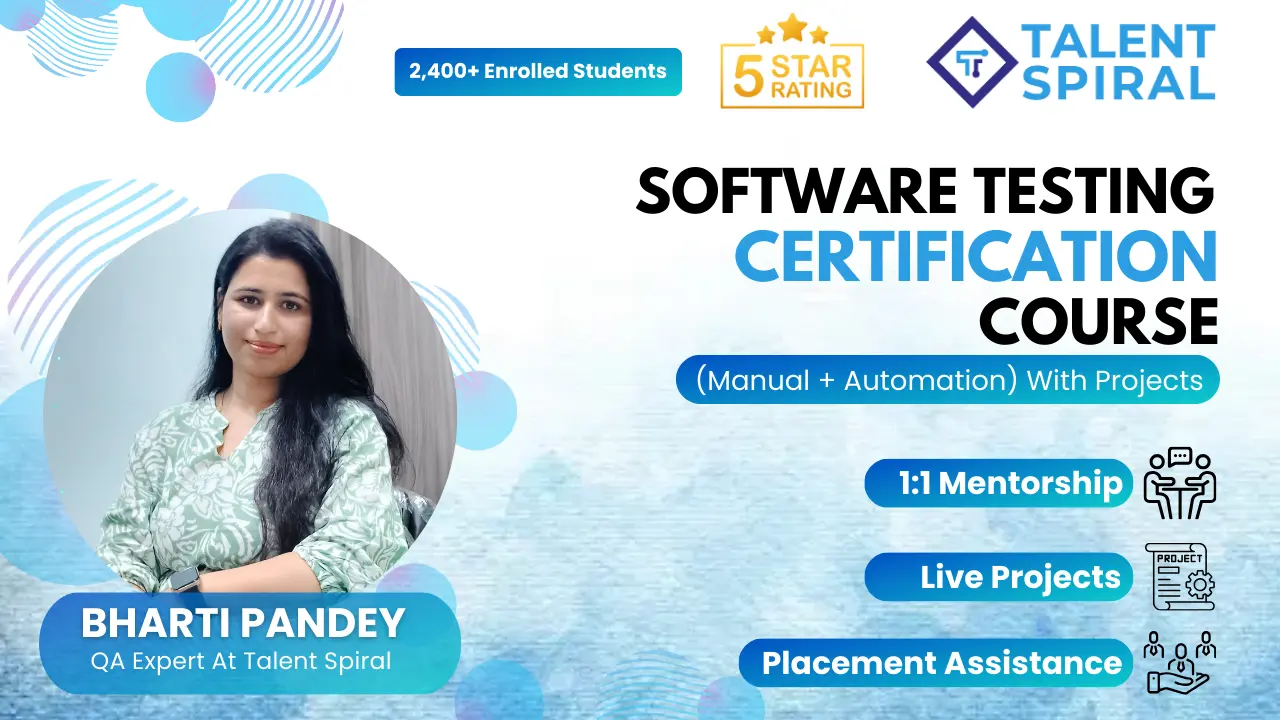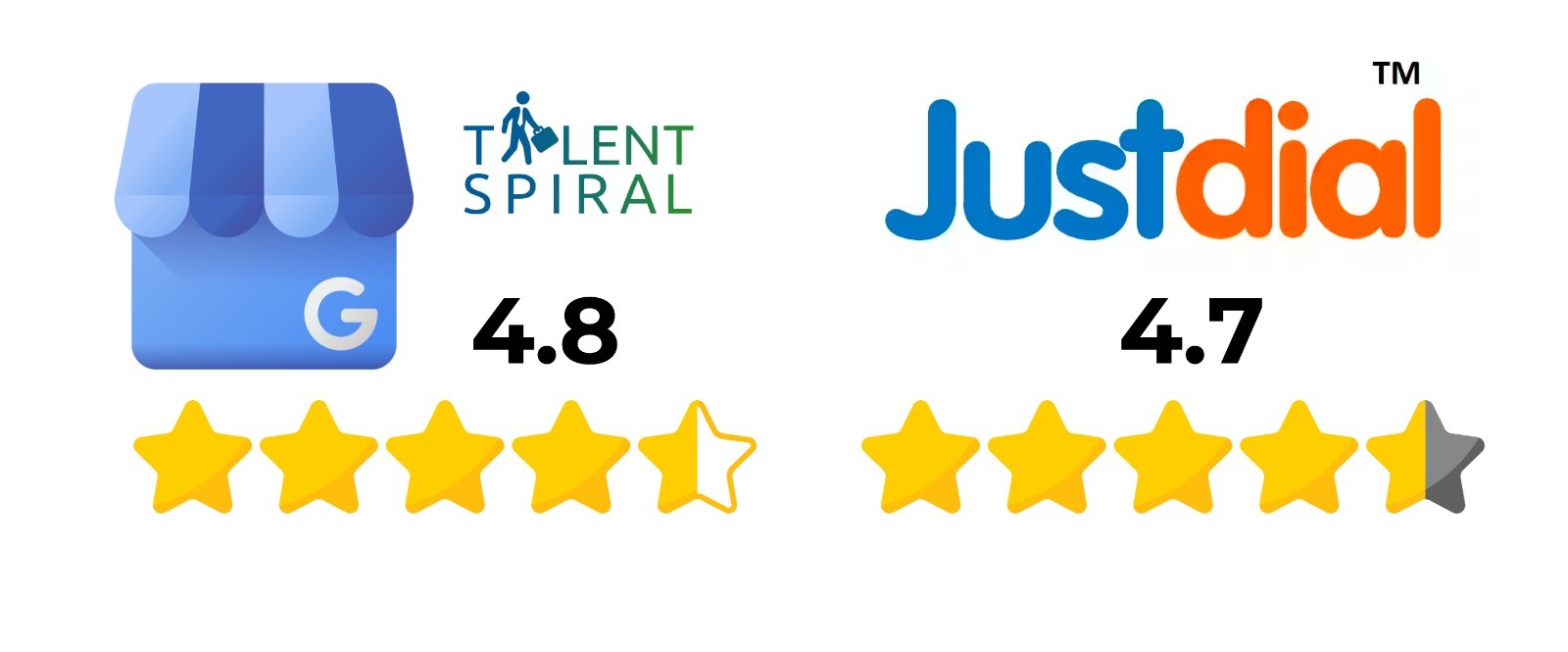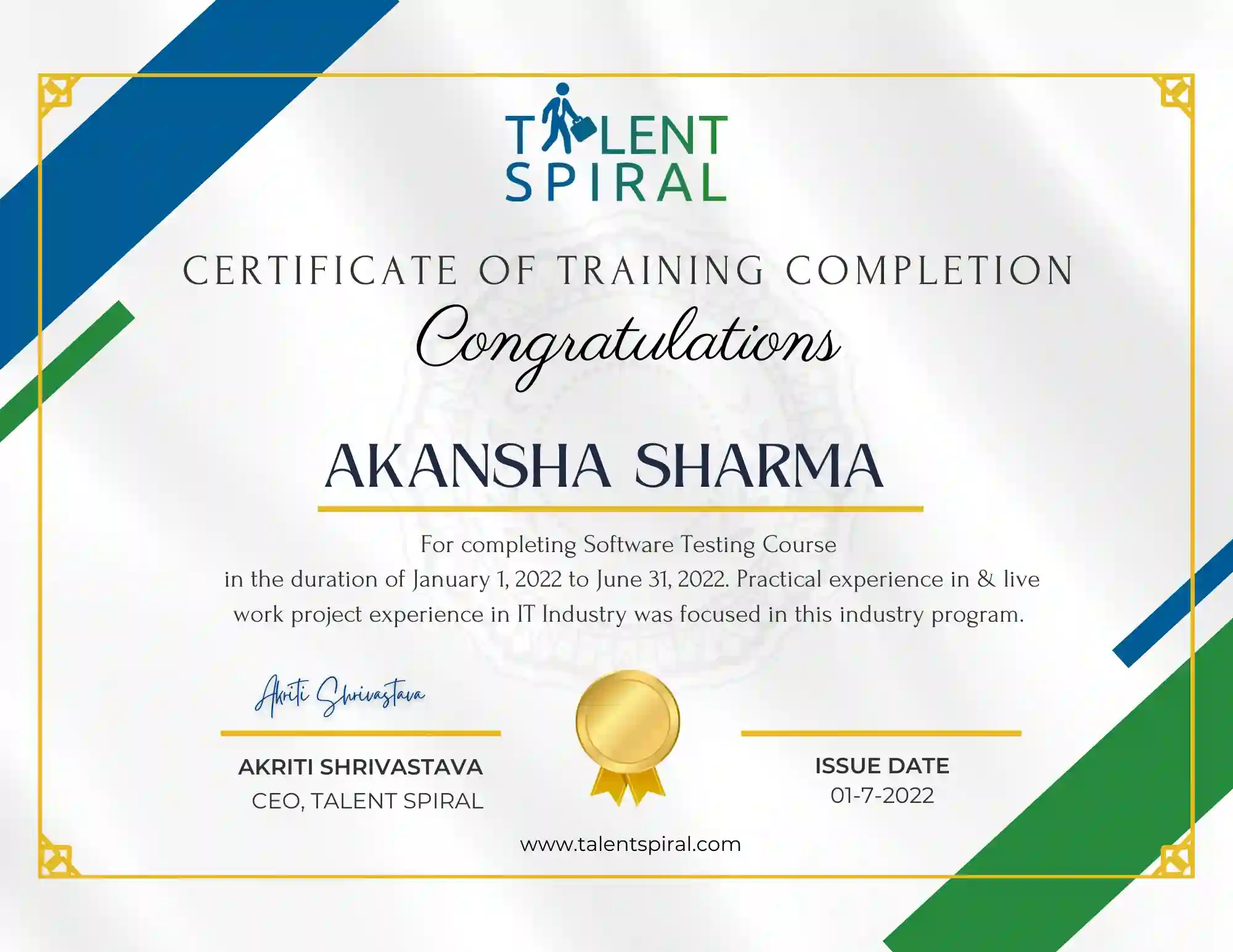Course Modules
A software testing course is a transformative opportunity to learn and gain extensive knowledge in the field of quality assurance. These courses provide a focused and structured learning experience, equipping individuals with essential skills and techniques. Through interactive lessons, practical exercises, and real-world examples, participants acquire a deep understanding of testing methodologies, test case design, defect tracking, and automation. By exploring various testing techniques and best practices, learners develop a critical eye for identifying and resolving software defects.
The knowledge gained from a software testing course empowers individuals to contribute to the development of robust and reliable software applications, making them valuable assets in the tech industry. Become a software testing expert with comprehensive courses including manual and automation testing, SDLC models, Selenium automation, and much more.














webp.webp)